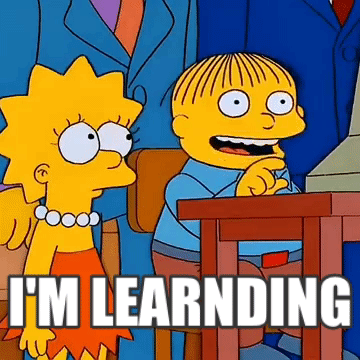Why should you have to go to lectures? And don’t give me any of that ‘to learn your course better’ or ‘because you’re paying nine grand for it’ malarkey. Because that’s exactly the point. You’re paying nine grand for this. Nine grand to fritter your youth away in a room for two hours at a time, listening a vaunted scholar plug his latest book. I always wondered why they called them lecture ‘theatres’. Because usually when I go to a theatre, something interesting happens.

As I listened to my History lecturers deliver a talk which I was sure began some time before I was born, I wondered if there was a better way to learn. A way that didn’t involve gawking at a Powerpoint as my life ended one boring minute at a time. And so should you. After all, you’re paying nine grand for this. Demand something better. What you need, my friend is more active learning.
But Alex, what’s active learning?

I’m glad you asked, reader. Active learning is the term used to describe all the ways you learn things in seminars i.e. by being more active. Group discussions, in-class quizzes, clicker-questions, floor debates, technology; it’s all good stuff. UK universities are famed worldwide for their dedication to research. And yet, they have failed to find a way to apply this desire to learn and innovate to their own teaching methods.
Now, this complacency has come under fire by students and higher education officials, and rightly so. Because despite several studies that say that it doesn’t work, the UK’s lecturers have continued with the ‘bore it into you like a drill’ method of teaching.

This is probably because it ‘gets the job done’. But does it really? Everyone might generally pass their exams, sure. But in actual fact, undergraduate students in classes with traditional lectures are one and a half times more likely to fail exams than students in classes that use active learning methods, according to Science Mag.
And that’s not all either. A few American studies have shown that students get a deeper understanding of concepts, are more engaged and achieve higher grades through active learning, including for the notoriously difficult STEM subjects. And here’s the kicker: these active learning tactics seem to hold particular benefits for students from disadvantaged backgrounds, and female students in male-dominated fields. What’s not to like about that?
Active learning isn’t just better, it’s crucial

Imperial Vice-Provost Simone Buitendijk said it best when she said: “Our world desperately needs innovative, bright minds to help tackle the challenges it is facing and will continue to face in the coming decades. It is no longer enough to just teach our students to pass exams.”
Now is absolutely not the time for complacency. It’s time for young people to show leadership, critical thinking, problem solving skills and teamwork. And there’s only so much you can show when lecturers simply don’t teach you like that.
It requires a lot more agency on the part of students as well as higher-ups. Yes, students can be – and I speak for myself as much as anyone else – famously lazy. But this is for our own good. Because even though you know the presentation is going up on Canvas later, you also know damn well you’re not gonna look at it after class.
So start paying attention. Demand something better than lectures. Ask questions of your faculty staff. Live your life as full and as wonderful as you can. And make the most of your nine grand.


